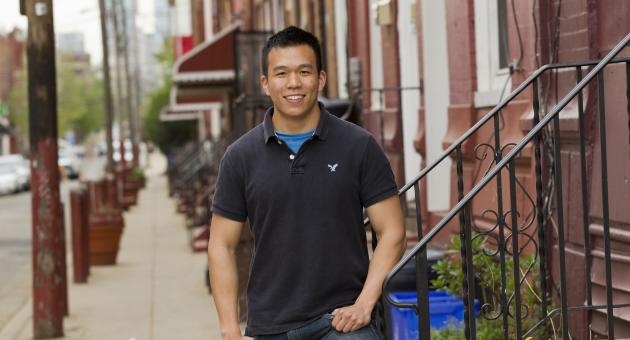Bio major helps improve the community, one student at a time

Gary Cheung realized early in his college career that he had an interest in community service. The Havertown, Pa. native quickly found his niche within Squash Smarts, a unique after-school program that mixes athleticism with education. In the beginning, getting the students focused on academics was a little challenging, but as the semester continued he noticed a change in all of the students he worked with. The experience helped him realize that he has a passion for teaching and that he wants to continue to work in a field that helps serve urban youth. In addition to his work with Squash Smarts, Cheung served as president of the Temple University Community Service Association (TUSCA).
Temple Times: What did you study?
Gary Cheung: I started college as a pre-pharmacy major. However, in studying for my pharmacy admissions exam, I realized that I could become more than a pharmacist. I wanted a career that challenged me intellectually and could make a difference in the lives of people I help, so I decided to pursue a career in medicine. I changed my major to biology and minored in business.
TT: What fuels your passion for community service?
GC: I’ve always wanted been interested in community service. Teaching young students was always a goal of mine, but I never found the right opportunity. During my junior year, I finally found a local after school program at Lenfest Center called Squash Smarts. The program pairs local students in need of academic structure with volunteer tutors who help build their skills and self-esteem through a game of squash and academic sessions.
TT: How did working with students at Squash Smarts change you?
GC: Through the experience, I learned better ways of working with students, on both good and bad days. Working with students has also helped me to realize many things I have taken for granted as an adolescent. Some of the middle school students there were still unable to read or perform addition or multiplication. These are skills learned during early elementary school, yet these students were never assessed properly and taught sufficiently. However, this tragedy is even more reason that programs such as Squash Smarts should exists, to provide the confidence and skill sets these students need to succeed in life. The opportunity to mentor these students has been one of the biggest eye opening experiences in my life.
TT: What are your plans for the future?
GC: Squash Smarts sparked my interest in teaching others and playing roles in future mentoring positions. Teaching is a rewarding experience because of the impact one makes in other people’s lives, not just through the educational content, but also through the ability to connect with your students and share your experiences and advice. For the students, I believe they gained a different outlook on life that will help them to make a better and more informed decision on how to approach their future.